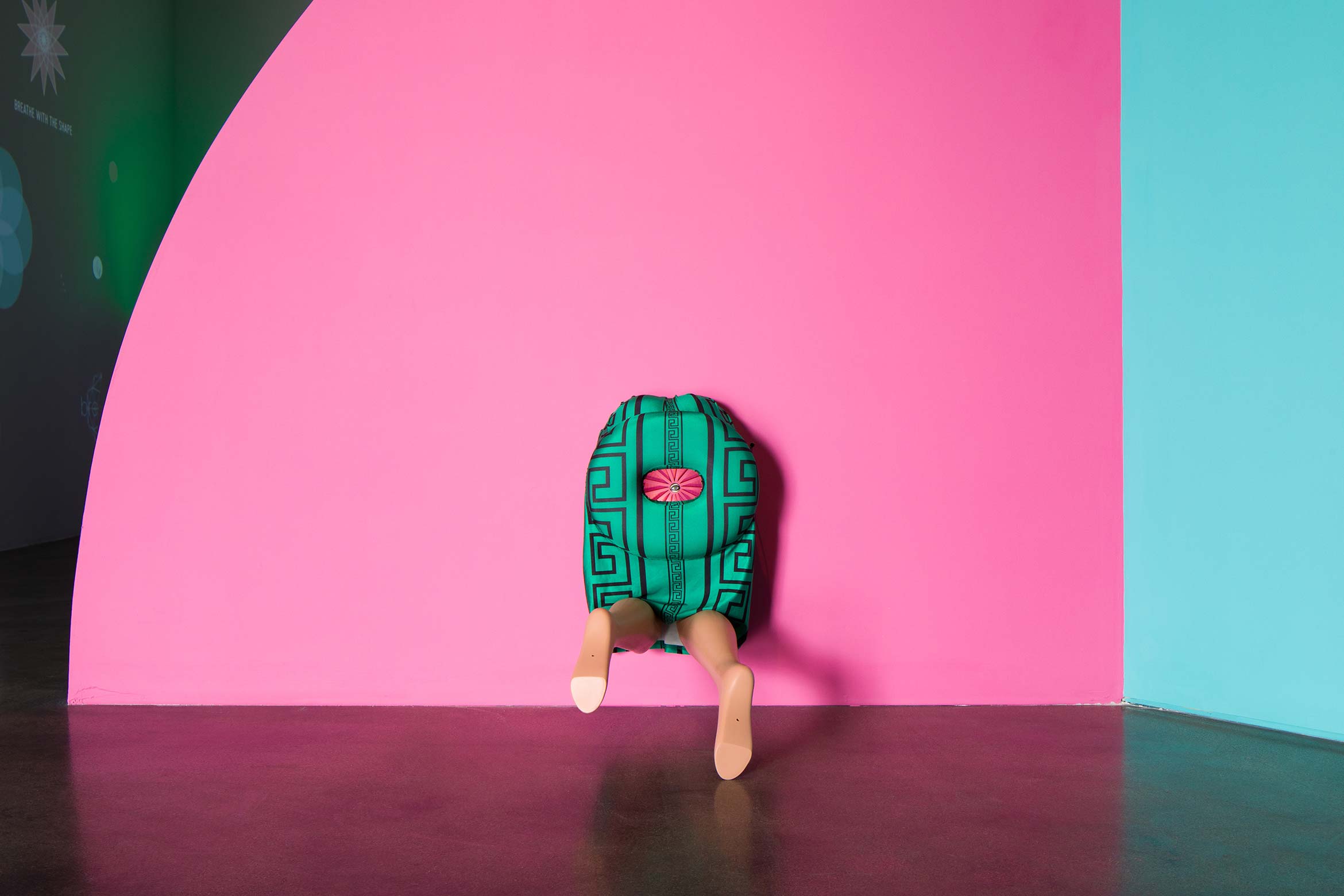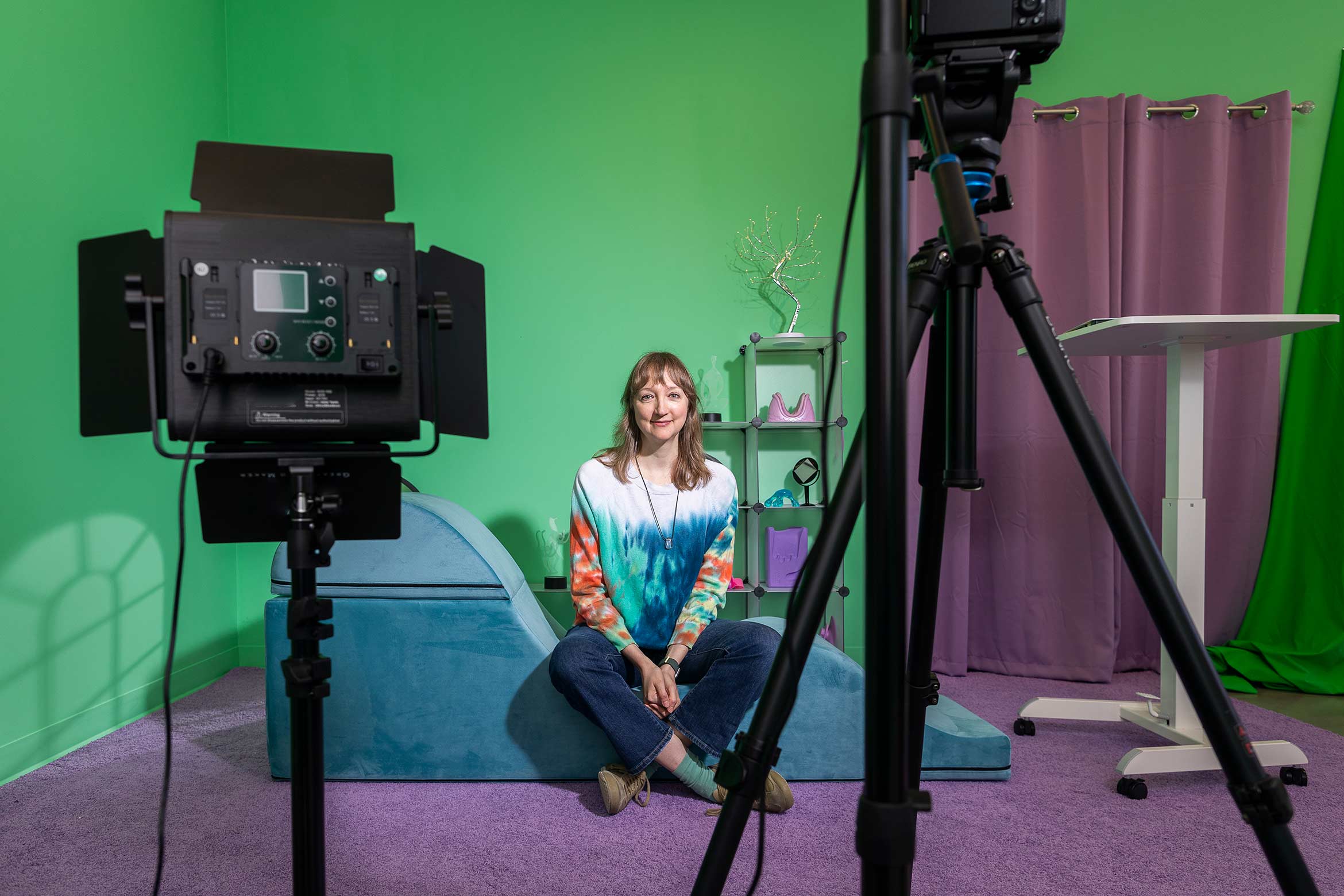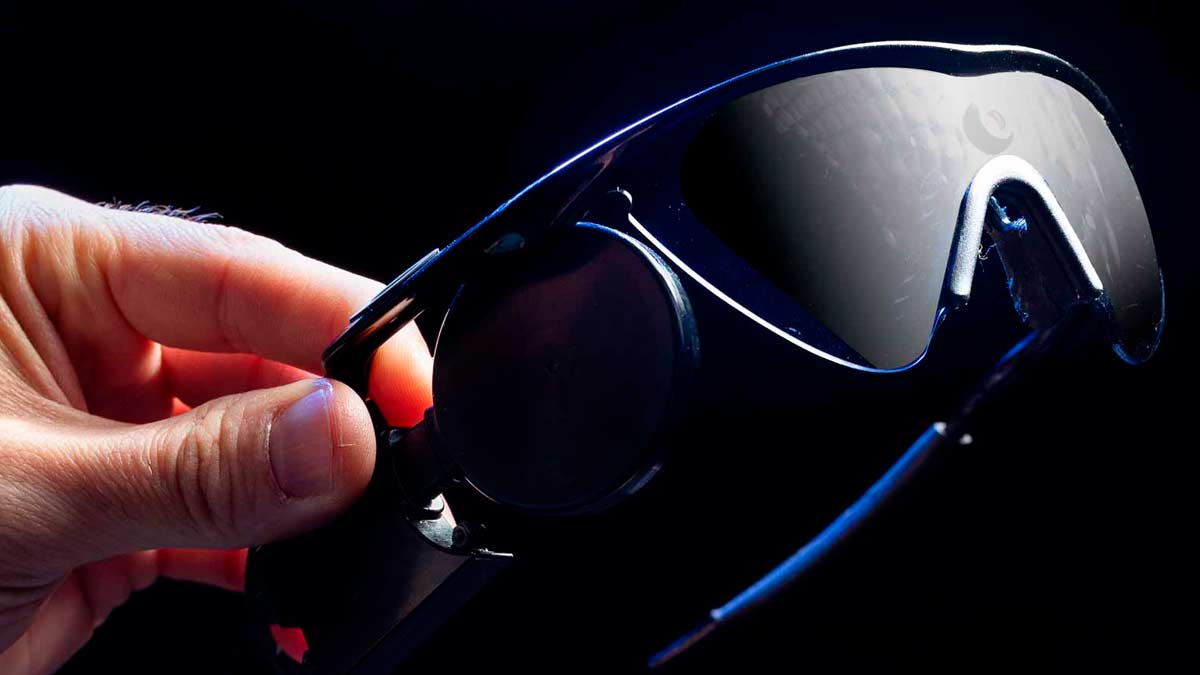David Bowie’s Ziggy Stardust; Beyonce’s Sasha Fierce; Joan Jonas’ Organic Honey; Lucy Schwob's Claude Cahun ... Throughout history, alter egos have allowed artists to explore hidden facets of identity.
Performing the misadventures of her semi-autobiographical alter ego, artist Shana Moulton has drawn attention in the field of new media studies. Over two decades, Moulton, a professor of time-based arts at UC Santa Barbara, has used physical comedy to interpret her artistic creation, “Cynthia,” a wide-eyed ingénue.
In Moulton's performance, video and sculpture series, "Whispering Pines" — named after the trailer park in Central California where Moulton grew up — Cynthia often sports a housecoat or spandex and seeks enlightenment through exercise and shopping.
Most recently, Moulton presented an extension of “Whispering Pines” — “Meta/Physical Therapy” — at The Museum of Modern Art (MoMA) in New York. (While the work was on view, from Feb. 17 to April 21, 2024, the museum's overall attendance was close to half a million people.)
“The whole video and performance project revolves around my alter ego,” says Moulton, who came up with Cynthia in graduate school at Carnegie Mellon University. At the time, she was creating a series of dresses that had medical devices embedded in the fabric — a walker, a neck brace and a hemorrhoid pillow, for example, gotten from her grandparents and friends. She realized someone needed to wear the pieces and decided to do it herself as a character. “I wondered what kind of person would need to wear these dresses,” Moulton says. “She would be someone in a heightened state of pain or anxiety or maybe hypochondria.”
In many ways, Cynthia is very much Moulton, she says: “There’s not a lot of distance between her and I besides a wig and a lot more makeup.” Initially, she thought of Cynthia as a combination of herself, her mother and her grandmother, and the attitudes they have in common toward aesthetics and shopping. Cynthia is the name she always wanted as a child, she says, and she likes how it sounds like “synesthesia,” the blending of senses, such as seeing music or smelling colors.
Inspired by Moulton’s current health issues — frozen shoulder syndrome and hip arthritis — “Meta/Physical Therapy” uses physical limitations as a springboard for representing forms of adaptation. “Bombarded with choices, confused by technology and motivated by advertising, Cynthia exists in a state of perpetual searching — for physical wellness, knowledge and purpose,” notes Erica Papernik-Shimizu, associate curator of media and performance at the MoMA.







